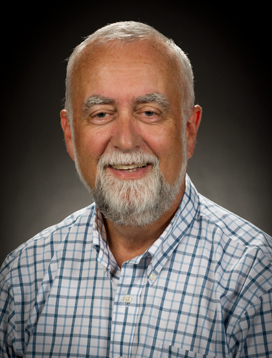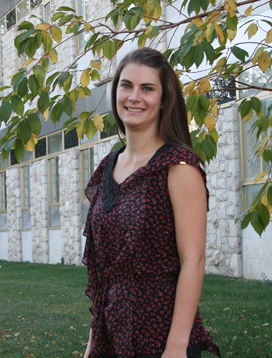Virtual house calls may help rural dementia patients and caregivers
Administrator | Jun 16, 2014 | Comments 3
Can video conferencing help people with dementia in rural communities?
The answers may lie in two research projects funded by the Alzheimer Society Research Program investigating potential benefits of video-linking people with dementia and their caregivers to health-care professionals in urban centres.
The technology brings instant treatment and advice into the homes of residents living hours away from health-care services in a matter of clicks.
It’s an advance that could address an urgent shortage of long-term care beds as the number of aging Canadians with Alzheimer’s disease and dementia rises.
“It’s one of the major health crises our society will have to face over the next 30 years,” said Roger Butler, a Memorial University family medicine professor based in St. John’s. “When government spends hundreds of millions on nursing homes as a solution without having all forms of assisted living and at-home programs in place, that’s a model doomed to failure.”
Thanks to ASRP funding, Dr. Butler’s “tele-gerontology” project, could reduce the pressure on the long-term care system by delivering expertise in real time, reducing caregiver stress, hopefully keeping people in their homes longer, and saving people unnecessary trips to the big city for specialized care.
Butler’s team will provide tablet devices or home computers to 20 individuals living with the Alzheimer’s disease. A nurse or doctor in St. John’s would check in weekly via video link, supporting the primary caregiver on anything from how to bathe the person in their care to getting him or her to bed.
“We want to see how we can keep people in their homes longer. People are happier in their homes; happier in their communities,” said Butler. Caregivers feeling too overwhelmed are a major reason why people end up in long-term care.
“If you’ve got a well-educated, trained caregiver feeling supported in their community they won’t burn out as quickly as if they’re left to their own devices,” added Butler.
The effectiveness of therapy delivered over video conferencing is also central to Rachel Burton’s research on cognitive rehabilitation.
The 27-year-old clinical psychology PhD student at the University of Saskatchewan’s Rural and Remote Memory Clinic wants to help people whose cognitive skills are lost or altered when there is damage to their brain cells as a result of Alzheimer’s disease.
Video conferencing could help these individuals re-learn cognitive functions without having to leave their own homes.
“I’m still in Saskatoon, and people who are accessing the treatment would remain in their home communities,” said Burton. “I’m in a room and there’s a small TV screen, and they’re in another room with a screen, and we just talk.”
For example, for one Alzheimer’s participant who wanted to regain her ability to recall important personal milestones, Burton’s team compiled a photo album of the person’s significant life events which helped the individual re-learn names and relationships of family members.
For now, this work is being done in person. But in the next phase of the study, Burton will adapt the treatment to be delivered remotely through video conferencing. Rather than sitting together in the same room, participants will see and talk to each other using television screens. Burton anticipates that family caregivers will play a bigger role in video conferencing-facilitated treatment.
British trials have shown that cognitive rehabilitation can help people with dementia manage memory lapses, but requires weekly sessions with a trained professional. That’s not always available to rural residents, who have limited access to specialized health services.
Burton hopes her study will replicate the successes from the British in-person trials.
As a budding research scientist, Burton said the $61,590 award she received from the Alzheimer Society has allowed her to study cognitive rehabilitation therapies in more depth.
We know you want to help researchers like Roger Butler and Rachel Burton as much as we do. Research can improve dementia care and treatment while we find a cure. Donate today. Help change the lives of Canadians with dementia for the better.
-From the Alzheimer Society of Canada
Research can improve dementia care and treatment while we find a cure. Donate today. Or visit the Prince Edward County office today, to help change the lives of Canadians with dementia for the better.
 For programs and services in Prince Edward County,
For programs and services in Prince Edward County,
visit the Alzheimer Society website;
email linda.steacy@alzheimerhpe.ca ;
call 476-2085 or
visit at 90 King St., (corner of King and Paul), Picton.
Filed Under: News from Everywhere Else
About the Author:





































At Dementia Mentors, one of our goals is to keep those living with dementia social. This is where our Virtual Memory Cafes have become outstanding.
When we do our live mentoring sessions through via webcam, we state right out, that we do not give medical or legal advice. Our mentors, who are all living with the symptoms of dementia, are only stating their opinions on their symptoms and experiences.
That being said, I’ve always had concerns about doctors treating and diagnosing patients through webcam visits. If it’s something as simple as renewing a prescription or answering a few questions about certain symptoms, I believe that may be okay.
However any new apparent symptoms or addressing a new diagnosis should be done in person at the doctor’s office.
Now as a caregiver’s point of view, if a doctor would of given me five minutes of their time through a webchat, I would have been thrilled. You’re lucky to get that in their office and it may be a way to address certain problems without your loved one sitting right in the room.
Dementia Mentors is a great global site that went live June 1st. To become a mentor you must have been diagnosed with Dementia and willing to share your experiences and resources with those newly diagnosed. Those with a new diagnosis are matched with a mentor that has experienced similar symptoms. Video chats and live support groups are frequent. Those on the site that speak openly and have helped advocate for awareness say it has helped them ward off symptoms and helped their overall wellness. The response to this new site which I am proud to say has been launched by friends and colleagues -offers activities and information videos as well as the option to click a bar and have all of the blurbs read over your speakers for those with difficulty reading.
There is no substitute for having a caregiver on hand- but it is true that there is also no substitute for having a relationship with someone that truly understands your journey. For people in rural areas or even those that feel isolated in a big city- sites like this are a valuable lifeline.
The truth of the matter is ‘Dementia’ is an umbrella term for a varying set of symptoms that stem from over 100 different causes. IF one University focuses on finding the cause and/or a cure for vascular dementia it is just that. A study on ONE form of dementia. Over a hundred more to go. Every different diagnosis of dementia is important to the person living with it. The stigma and misinformation out in the public is one of the toughest things for someone newly diagnosed to deal with.
Programs such as the one outlined above are on the forefront of changing how people remain social and stay present. They are VERY important to those without another way to connect. I urge you to go to http://www.DementiaMentors.com and check it out. While some of your points are valid Lena, its unfair to say money donated to The Alzheimer Society is misappropriated. It’s also unfair to speculate where the money is going or to judge the value of a program based on a less than a page long blurb.
I was very proud to volunteer to organize this year’s tag day fundraiser for The Alzheimer Society Prince Edward that took place over the weekend. I’m extremely proud to say that that we had amazing volunteers canvassing for donations and that ALL of the money raised is staying in the local office, to aid the people in our community. If anyone has any questions about fund allocation or services available calling the office or inquiring online is the way to get those answers. I am glad to see such helpful programs being developed to appropriately help those in need of services.
Sincerely, Tabitha Kay- Purple Angel Global Ambassador for Dementia Awareness
Not that I don’t believe in supporting research into helping Alzheimer’s or any other serious illness. But this study, in my opinion seems a waste of $60,000 that could have been spent providing professional in-home care for many patients. My guess is that the benefits seen are more likely because they researchers were physically in the home, which is the best thing one can do for a caregiver. With the health care system’s emphasis on keeping people at home and out of the hospitals by cutting beds and staff, there is no where for these people to go. Their loved ones are now being forced to do a job for which they have no training and to do it 24-7. Even the professionals get time off. Now they are promoting substituting professional in-home care with long distance, over-the-internet care?
And the Alzhemeir’s Society is using this article for a plug for donations for more (of the same?) research to find a cure. I just wish the public would take off the blinkers and make sure money donated for research (billions annually) would be spent on “finding the cause” instead of “finding a cure”. Any research linking pesticides or chemical additives in our foods and environment to things like cancer, ADHD and Alzheimer’s are quickly buried. The Bayers, Dowes and Monsantos of this world have two wonderful revenue streams that they are protecting fiercely… the chemicals that cause the problems, and the drugs that are used to treat those problems. They back organizations that raise money by having us run, walk, ride or swim for the ‘Cure’ instead of raising money to find the ‘Cause’.